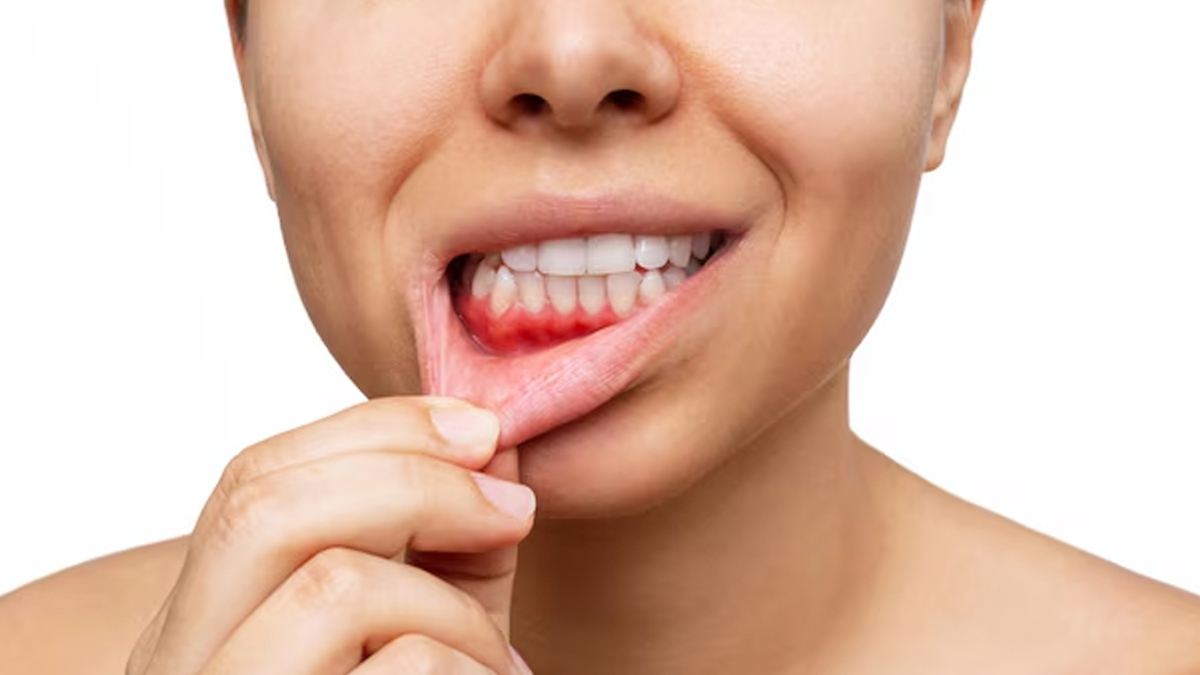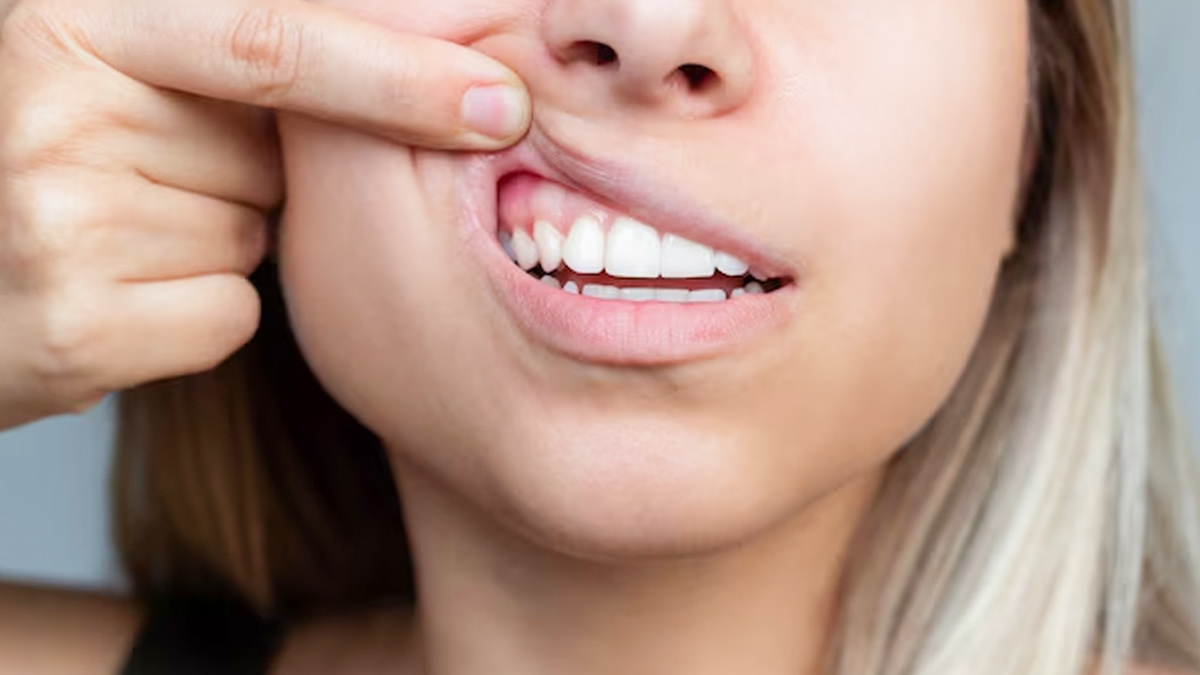
Gum health is so important. While it is often overlooked, doctors recommend regular dental checkups to identify common diseases associated with unhealthy gums. But how can you tell if your gums are actually healthy? What symptoms should you watch for? To answer all of these questions, the OnlyMyHealth team interacted with Dr Neelam Lodhi, Consultant Dentist, Apollo Dental, Bannerghatta, Bengaluru, who not only shared common identifiers but also highlighted the factors that contribute to gum issues and diseases.
Table of Content:-
Also Read: Can Your Oral Health Impact Your Body And Mind? Expert Shares How
Factors That Contribute To Gum Disease

Gum disease, also known as periodontal disease, is a bacterial infection that can be caused by several factors. It is primarily caused by plaque buildup on teeth and gums. According to Dr Lodhi, when plaque, which refers to a sticky film of bacteria, isn't removed by daily brushing and flossing, it irritates the gums, causing inflammation and potentially leading to gum disease. This inflammation makes the gums more likely to bleed when disturbed by brushing or flossing.
"Habits such as smoking, poor diet, excessive alcohol consumption, and inadequate oral hygiene can lead to poor gum health," the doctor adds.
It is important to know that unhealthy gums in the early stages, also known as gingivitis, can be reversed with improved oral hygiene and professional dental care. In fact, the reversible condition affects up to 90% of the population, according to StatPearls Publishing.
Signs Of Healthy Gums Vs. Unhealthy Gums

“Identifying healthy gums is pretty simple: if you have pink, firm gums that fit snugly around the teeth, then it's a sign of healthy gums,” says Dr Lodhi.
Moreover, they should not bleed, swell, or be tender when brushing or flossing.
While bad breath can signal various underlying issues, healthy gums help rule out at least one potential cause.
On the other hand, unhealthy gums or early-stage gum disease, or gingivitis, can cause gums to appear red, swollen, and puffy; they may feel tender and bleed easily. Even with gentle brushing, the condition persists.
Other early signs include persistent bad breath and a receding gum line.
Also Read: Not Brushing Your Teeth Before Bed Could Increase Heart Disease Risk? Expert Weighs In
How To Strengthen Your Gums

In order to have optimal gum health, Dr Lodhi recommends visiting a dentist every six months for a checkup and cleaning. However, if you’re prone to gum problems or have a history of gum disease, he advises more frequent visits or a consultation with a periodontist for specialised care and monitoring.
He notes that if gum disease progresses to periodontitis, it can cause irreversible damage to the bone and supporting tissues around the teeth, potentially leading to tooth loss and requiring more advanced treatment.
To keep your gums strong and healthy, focus on good oral hygiene, eat a balanced diet, and cut down on sugar and starch. Brush twice a day using a soft-bristled toothbrush and fluoride toothpaste, floss daily, and consider using an antimicrobial mouthwash. Eating plenty of fruits, vegetables, and foods rich in vitamin C, vitamin E, and omega-3 fatty acids can also support gum health.
Also watch this video
Read Next
First Ozempic Face, Now Ozempic Teeth: What To Know About The Latest Side Effect Of Weight Loss Drug
How we keep this article up to date:
We work with experts and keep a close eye on the latest in health and wellness. Whenever there is a new research or helpful information, we update our articles with accurate and useful advice.
Current Version